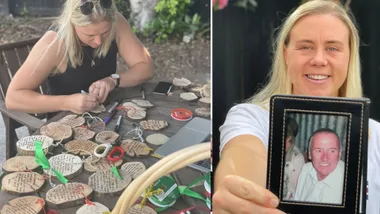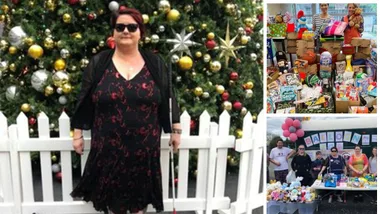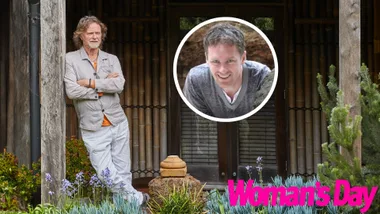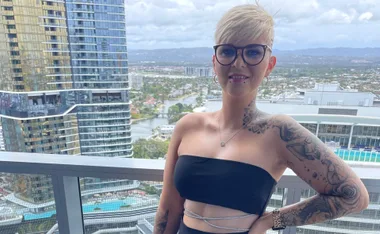When I was a missionary at Youth With A Mission in Newcastle, NSW, we had to admit our sins publicly in order to be closer to God. Not being able to openly admit your faults meant you were not humble enough to allow God to “go deep”, so people were encouraged to share their deepest intimate secrets.
If you admitted to being homosexual you also needed to change and not be gay. Homosexuality was not permitted in the interdenominational missions organisation. Neither was masturbation.
Hearing God was something that we all strived to do. The seven steps for hearing God’s voice was something we revered, and struggling to hear God’s will was a sign of failure, and that you needed to be more devout. Following guidelines such as allowing our own desires, reasoning and imagination to die, was just part of our everyday teachings.
We weren’t expected to think for ourselves on the big decisions, we needed God to answer for us. Sometimes our leader would ask us what God wanted us to do in certain situations, and if we didn’t give the answer he expected he would make us pray more, and come back with a different answer. He would reply, “that’s not what God is telling me,” and he would send you away to pray on it some more until you came up with the “right” answer.
I did my best to hear God, but looking back it was probably all in my own head. I’ve now had conversations with people who have also left the cult and they all admit to making stuff up just to be accepted.
I grew up with strong religious beliefs. I was born into a heavily religious household and my father was an evangelical preacher with The Brethren Church. We were a missionary family in Ecuador until I was seven. When we came back to Canada my father didn’t want us to be in public schools so my mum tried to homeschool us. The homeschool literature that was used was extremely fundamentalist Christian, the same literature as the Duggar family on TV.
My dad preached from the pulpit, often guest pulpit at other churches, but my father did not practice what he preached. He was a zealot who was very unpredictable in his behaviour and his punishments. He abused us emotionally, spiritually, physically. It made me question my father as a man of God, but not my faith in God.
I couldn’t get away from my family fast enough so I moved out at 17. I wanted to travel the world so at 19 when I was heard of a discipleship training school with Youth With A Mission it seemed perfect. I was 19, and the church leader was charismatic and engaging. I was really searching for a father figure so I found him really intoxicating.
He was so much closer to God than I was and he could hear God more than me so I wanted him to like me – platonically- and I wanted to be like him, so I could be closer to God too. He had his favorites, though, and they were given special tasks and if you were not a favorite it was very difficult to advance in the order.
We all worked for free. There was an entire base to run and a café, kitchens, and cleaning duties. Everyone was given jobs according to their abilities, or “gifting” as it was known. If you wanted to change jobs or had any queries as to how things were run you could only address the leaders, but they decided what your gifting was, it had nothing to do with your actual interests. No gossip or discussion of how things were run was allowed between members.
We were not permitted to be alone or flirt with the opposite sex. We were adults ranging from 18-23 years old yet we could not even walk to the shop with someone of the opposite sex without a chaperone. We couldn’t be alone in a room ever, and sometimes even the same sex was questioned. You could get permission to date someone but it was almost seen as a betrothal and if the leader had someone else in mind as a match he would not grant permission, saying it was not what God wanted.
This constant observation and questioning of our behavior rendered me unable to make decisions for myself until I addressed this in therapy after I left. I struggled with the ability to critically think and make choices. I feared retribution for the wrong decision even in simple tasks, like speaking to the wrong person, or being too close with them in a room, but my therapist helped me to process not needing to hear God for decision making, but using the brain God gave me instead.
I started to have doubts about the Church after three years, and whenever I approached the leaders with questions I felt they deflected me with YWAM answers like “How can I serve you in this?” “What is God telling you you need to do?” and nothing ever got answered.
All of the questions started to not add up for me, and the final straw came when I needed to go home to Canada for medical attention but getting permission to leave was really hard, I knew then that this was not a good place. This religious zeal was hiding a cult that just wanted to control impressionable young people and create a community of drones.
I married a man who also left the cult. We became very close in there and we both understand each other’s experience. We now still both have faith, but we cannot be a part of organized religion as the church has many triggers for us that takes us back to a difficult time in our lives, but we still believe in God and we know that turning away from a cult that is negative for us spiritually will not make God see us differently.
A response from Youth with a Mission:
“We were saddened, surprised and dismayed at the publishing of an anonymous letter regarding our organisation last week.
Saddened, to hear that someone who has allegedly attended our organisation, could be experiencing such pain and anguish. We only have compassion for people who have attended our programmes in the past. I would welcome meeting with your anonymous writer in an effort to reconcile differences, in the hopes that the pain they so obviously carry, might be mitigated.
I need to point out to your readers that the message published, along with the allegations reported, are simply not true. The idea that for example we would work to stop people leaving, force folks to confess shortcomings, or dictate romances, is ludicrous. People who know us appreciate our values led sincerity.
Externally-controlled cultish practice, as alleged, doesn’t exist. It’s absence is proving in the sincerity of convictions held by the people involved.
We are an open and community orientated organisation and have been serving Newcastle for decades.
We do equip and train people, helping them to be kinder and stronger and better citizens, while respecting their personal domain. While it may not be the intention of your publication to vilify community organisations, this piece was published anyway and has tarnished the extraordinary community services our staff are involved in.
If requested we would be more than happy to provide more information on the works we do in our community and give live recommendations showing our good reputation and standing both locally and internationally.”
David Stephenson, YWAM Newcastle Managing Director.
As told to Danielle Colley.











